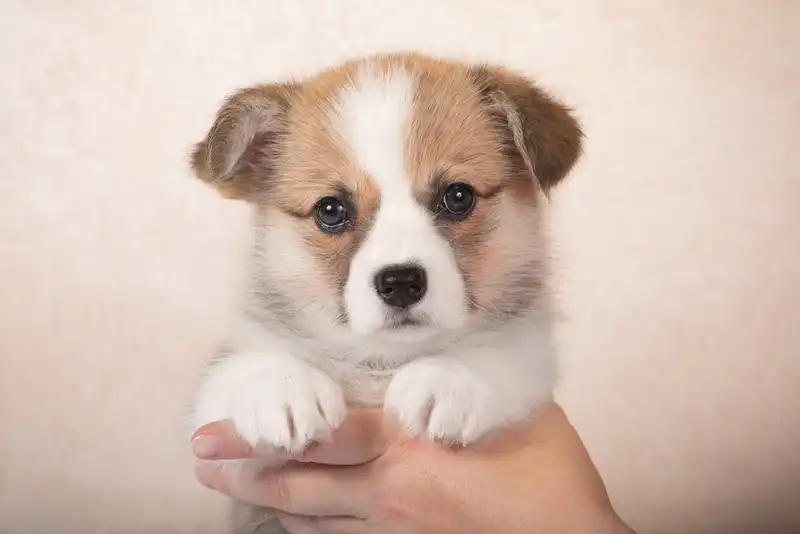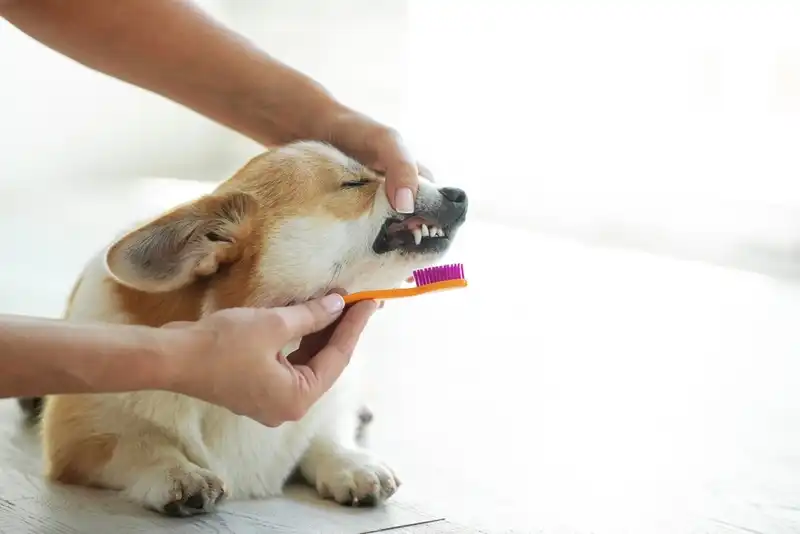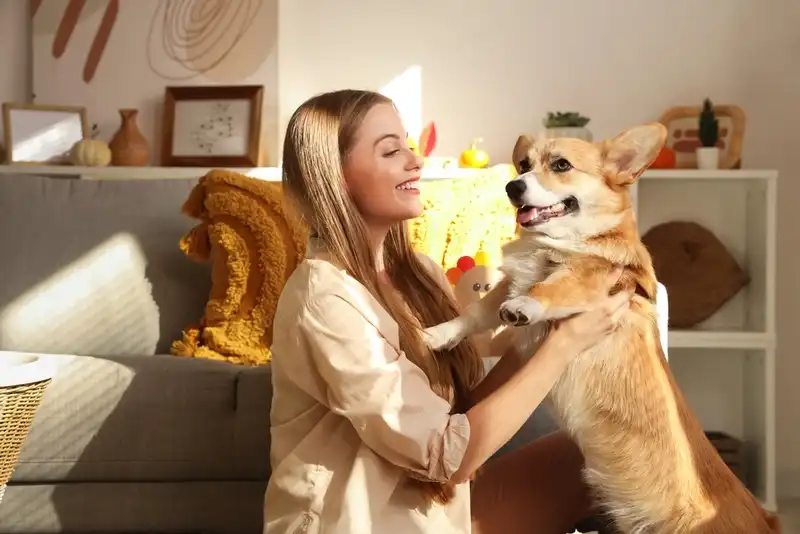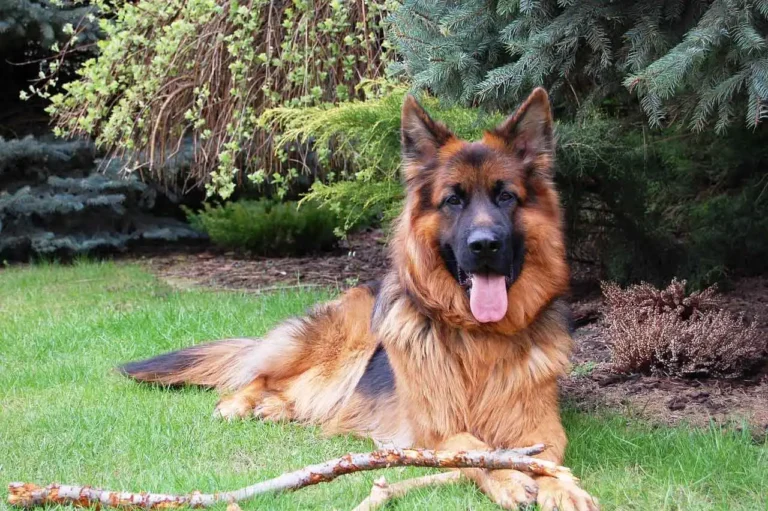How to Care for a Corgi
The appearance of a puppy in the house is an exciting moment for both the owner and the pet itself. The training of the dog and care for its health begins in the first months of life. Therefore, it is worth preparing for this moment in advance, buying everything necessary and providing the best conditions.
Care for a Corgi

Are you ready to get a pet?
Preparing for a new family member is an important step that many owners overlook. First of all, you need to think carefully about how ready you are to get a dog, because keeping one will require a lot of time, patience and money. Living with a dog is not only joy, but also persistent daily work on training and building a relationship.
Are you ready to take care of a dog?
Before making a final decision, it is worth learning about the aspects of caring for pets of this breed. For example, corgis need long walks, and they shed quite intensively.
It is useful to ask yourself a few questions:
Are you ready to walk your dog twice a day for at least an hour?
Is there time in your daily schedule for mandatory games and communication with your pet?
Is it financially possible to keep a dog?
Do your living conditions allow you to have a pet?
Do your family members object to this decision and will they support you in training the animal?
Where can I get a puppy?
It is better to buy a corgi puppy from a nursery registered with the RKF (Russian Cynological Federation). Perhaps the price of a puppy from such a nursery will be impressive, and you will have to wait several months for the pet itself, but these costs will pay off with the health of the dog. In addition, reliable breeders issue documents for the puppy and a purchase and sale agreement. It is better not to buy a dog without it.
When buying a puppy “from hands” or from unverified sources, you can make a mistake and buy a crossbreed that has nothing in common with a purebred corgi. But appearance is not the most important thing. Such animals are likely to have poor health, and the financial costs of treatment may be higher than buying a purebred puppy from a kennel.

How to choose a puppy?
If you are not planning a show career for your dog, and the exterior is not of great importance, then you can choose a puppy based on your taste.
However, no matter how cute the baby may seem, there are a couple of nuances to consider:
Parents – experts recommend finding out about the health of the puppy’s parents, congenital pathologies and the tendency to develop them;
Behavior and character – the puppy should be active and cheerful, not show aggression or timidity;
Availability of a veterinary passport and vaccinations required for the puppy’s age – usually the breeder carries out the first veterinary procedures so that by the time the dog moves to a new home it is already protected from dangerous infections.
What do you need to buy for a corgi?
Due to their small size, corgis feel great in urban conditions. But it is important to create comfortable conditions for caring for and keeping a corgi in an apartment.
Before a puppy appears in the house, it is recommended to purchase a standard set:
Two bowls – for food and water (preferably metal);
A stand or mat for bowls;
Diapers – for toilet training while outdoor walks are prohibited;
Ready-made diet for puppies – to ensure proper nutrition in the first months of life;
Appropriately sized toys – Corgis love to chew on things, so they need toys that are specially designed for their teeth;
A bed is a soft mat that will determine the resting place in the new home;
Hygiene items – a fur brush, a tool for trimming claws, shampoo, dental and ear care products.
Additional items include a carrier (for travel), equipment (collar or harness and leash).

Where to start?
How to care for a corgi puppy when it first appears in the house? First of all, you need to prepare a place – a bed where the dog can rest alone and sleep. The puppy needs to be given time to get used to and get acquainted with the new environment on its own: do not rush it and move it from room to room. If there is already a pet in the house, you must introduce them, but only under your supervision.
A corgi puppy needs calm in the first days. Loud noises and excessive attention can scare it. Be sure to explain to all family members and especially children how to properly handle a small pet.
While the puppy is exploring its new home, it is advisable to be present nearby, but not to be intrusive.
How to prepare a place for a corgi?
Before the dog gets acquainted with the new house, its personal corner should be prepared in it – a bed or a blanket as a bedding. The sleeping place is located away from the radiator, door and passage. It should be a safe place in which the dog will feel comfortable.
In addition to the resting place, you need to prepare a feeding area. It is better if it is located in a quiet place that is easy to wash. If there are several animals in the house, then their feeding areas are best located at a distance from each other.

Pet Safety in the Home
Care and maintenance of a corgi necessarily includes the organization of a safe space. Before the puppy appears, it is worth removing all potentially dangerous objects: wires, small things, plants, etc.
The puppy should not be allowed to walk on slippery surfaces (tiles, parquet). It is recommended to cover the floor for a while so that the dog does not slip (this is fraught with injuries to the musculoskeletal system). Corgis should not be left unattended on a sofa, chair or other high surface.
How to care for a corgi puppy?
Puppies need extra attention and care, because they are just learning to interact with this world, studying it and actively developing. The well-being of a puppy in adulthood depends on how well it is cared for.
1 month
Newborn puppies are cared for by their mother. Human support is only necessary in the event of a lack of natural nutrition – then the owner will need to feed the puppies themselves, using a substitute for bitch’s milk. Otherwise, it is important to only monitor the condition of the mother – her nutrition and comfort.
1-2 months
From the second month of life, supplementary feeding (special food for puppies during the weaning period) is added to the puppy’s diet. At the age of about 2 months, the first vaccination is carried out, and the puppy is also accustomed to hygiene procedures: cleaning teeth, ears, cutting claws, examining paws. It is useful to accustom the pet to the sound of a hair dryer.
2-6 months
At the age of 2-3 months, puppies usually move to new homes. Caring for the corgi after the move becomes the responsibility of the new owner. Veterinarians recommend using the same diet as the breeder at first, so that the dog can more easily cope with the change.
Until the puppy has completed the vaccination course, they try to take him outside only for hygienic purposes, and hold him in their arms in the entrance.

6-12 months
Caring for a corgi after six months is related to the issue of puberty. At this age, the owner can decide on castration, which can be done as early as 6-7 months.
From 6 months onwards, dogs are trained more thoroughly – if necessary, owners can resort to the help of a dog trainer.
What to feed?
The corgi’s diet and the number of meals depend on age. From 1 to 2 months, puppies are fed 5-7 times a day, by 6 months the number of meals is reduced to 4 times. By the age of one year, the dog is accustomed to 2-3 meals a day.
0-1 month. Up to 1 month, the puppy feeds on mother’s milk. If for some reason natural nutrition is not enough, the puppy is fed with a substitute for mother’s milk.
1-2 months. During the weaning period, the puppy is fed starter products with a soft structure, gradually adding more dense food.
2-12 months. The owner starts caring for the corgi from 2 months, and it is better to feed it the same diet that the breeder gave it at first. After the puppy adapts, you can transfer it to food for medium-sized puppies.
1-7 years. Adult dogs are recommended to be fed with ready-made food for medium-sized dogs.
From 7 years old. From this age, animals are given a product for aging dogs.
Contents in the house
Corgis are generally active, playful, and enjoy running around in the fresh air. Living in a country house with a territory will be an ideal habitat for them.
- Caring for and keeping a corgi in a country house includes several nuances:
Provide a safe outdoor environment – remove all tools, fertilizers, toxic plants from access;
Check the fence for any “weak spots” – a curious pet might escape;
Carefully treat your four-legged friend for external and internal parasites and regularly check the skin and fur for ticks .
Corgis tolerate low temperatures well and can go for a walk without clothes in winter. Thick fur with a fluffy undercoat prevents the pet from freezing. However, keeping a corgi outside or on a leash is unacceptable.

Grooming Male Corgis
Corgi males and females have several distinctive physiological features. This is reflected in the behavior and care of the animal.
During puberty, a male dog may experience sexual arousal, with the prepucebacteria can get in and inflammation can develop – balanoposthitis. If you notice yellow, white or green discharge, you should contact a veterinarian.
Grooming Female Corgis
Females of this breed have estrus twice (rarely three times) per year. Duration is from 20 to 27 days. The moment when the bitch is ready for mating occurs in the middle of the estrus . In the following days, males should not be allowed near the dog. During this period, the female is walked on a leash and is not allowed to play with relatives. To prevent the pet from dirtying furniture at home, you can buy diapers for animals.
Hygiene
Taking care of your pet’s health includes proper hygiene, which helps prevent the development of many diseases. Taking care of a corgi will be easy if you know a couple of important aspects.
Corgi Grooming
The dog is combed approximately twice a week, and during the shedding period the procedure is performed daily.
To comb the hair, you will need a slicker brush – a special tool that does not scratch the skin. A comb with long teeth makes it easier to untangle matted hair, moving it in the direction of hair growth. When grooming a corgi, pay attention to the collar area and the back of the thighs. The hair on the tail is combed to the sides.
It is recommended to regularly take your pet to a groomer who will provide professional grooming, show you how to perform the procedures correctly and recommend the right tools.
Bathing
Corgis do not need frequent bathing and grooming. Veterinarians recommend arranging water procedures no more than once every 2 months, but it is better to do this as they get dirty. After a walk, it is enough to clean the paws and belly with a damp cloth or rag.
It is not recommended to bathe puppies until they reach 1.5-2 months; it is also better to purchase wet wipes for grooming them.
Ear and eye care
The dog’s eyes should remain clear (no discharge). Watery eye ducts are acceptable in corgi puppies, but by 4 months of age, health is assessed by dry, clear eyes without inflammation. Watery eyes or other abnormalities can signal various health problems, from a bacterial or viral infection to an allergic reaction to environmental components.
How often to trim claws
It is recommended to trim the claws 1-2 times a month or as they grow. When walking, the dog should not touch the floor with its claws.
To trim, you should buy a special claw cutter, which is sold in a pet store. The tip of the claw is cut not close to the claw bed. If you cut too much, there is a risk of hitting a blood vessel. A veterinarian or groomer can show you how to do the procedure correctly.
If you leave the claws long, they will start to flake and cause discomfort. A Corgi that walks often wears down its claws faster on the asphalt, but even those who like long walks need to do a “manicure” at least once a month.
Teeth
When talking about how to care for a corgi, it is important to pay attention to the cleanliness of the teeth. It is advisable to clean them at least three times a week. The procedure is performed using veterinary paste and a brush for animals.
It is better to start cleaning as early as possible so that the puppy gets used to this manipulation and tolerates it calmly in the future.
Toilet training
Toilet training a corgi puppy begins with mastering the diaper. Spread several diapers around the house. When the puppy relieves itself on the floor, you need to blot the urine with a napkin and put it on the diaper – puppies usually quickly understand the connection.
Once the vaccination course is completed, you can take the puppy outside to the toilet. At first, this is done often – after waking up and each feeding. As the pet grows, you can accustom it to two or three walks a day. Too rare walks will slow down the training.

Vaccination
Presumably, by the time a corgi puppy appears in the house, it will already have one or two vaccinations – usually this stage of care is carried out by the breeder. It is necessary to clarify the vaccinations carried out with the breeder, the marks should also be in the veterinary passport with the seal of the clinic.
At the first examination, the veterinarian will inform you whether further vaccinations are required and what the schedule will be. It is important to inquire about taking an antiparasitic drug two weeks before vaccination.
During the vaccination and quarantine period, the dog should not be washed, walked or allowed to become hypothermic. Its condition should be closely monitored – in the first few days after vaccination, the pet may be a little lethargic, sleep a lot and eat little. If the condition has not improved within 24 hours after vaccination, the dog is taken to see a doctor.
Spaying or neutering a Corgi
The decision on castration is made by the owner, based on the recommendations of a veterinarian. If the dog is not planned to be used for breeding, the operation can be performed after 6-7 months. The advantages of castration are the elimination of the possibility of unwanted offspring, as well as the prevention of many diseases of the genitourinary system.
When discussing this topic, it is worth touching on the common myth about the necessity of childbirth for the health of the bitch. Pregnancy and childbirth can be dangerous for the body, so it is not worth risking the health and life of the dog.
Walking your pet
Caring for a corgi necessarily includes regular walks at least twice a day. It is useful to take the dog’s favorite toys outside so that the walk is combined with active games.
In order for a dog to feel comfortable outside in the company of other animals, it is worth taking care of socialization – then walks will not only be physical activity, but also an opportunity to satisfy the important need for dogs to communicate with representatives of their own species.
You shouldn’t overload your pet – due to their anatomical features, many of them are contraindicated to run and jump too actively.
Training and education
When starting to train a corgi, it is worth stocking up on patience. It is important that the “lessons” take place regularly, and the training is consistent. In order for the corgi to master commands faster, they must be the same in all conditions.
Education begins with the puppy’s appearance in the house: it is taught the rules of behavior, communication with family members, proper games and acceptable pranks. If you do not want your pet to chew slippers in the future, wean it off this habit at an early age. When faced with encouragement for unacceptable behavior (barking, biting, begging for food), the dog gets used to it. It is more difficult to retrain an adult pet.
Corgi will show progress if training is transferred to a playful form.
The pet is weaned from begging for food, picking up things from the ground and gnawing. If training is difficult or there is not enough experience in working with a dog, you can resort to the help of a dog trainer.
Health and disease prevention
Corgis are naturally healthy, strong dogs. They are hardy and ready for long-term activities. Timely vaccinations, quality nutrition and following the recommendations of a veterinarian will help to avoid serious health problems.
Corgis have their “vulnerabilities” – eye diseases, a tendency to obesity, hip dysplasia. Due to the peculiarities of their structure, corgis are prone to problems with intervertebral discs. Attention to your pet will help avoid trouble: do not allow jumping from heights.
Pregnant and lactating women
Pregnancy in dogs lasts approximately 60-66 days. During this time, you should carefully care for your corgi and monitor its well-being.
In the first half of pregnancy, the bitch is offered her usual food, and from the 35th day, she is gradually transferred to a diet for pregnant dogs or puppies up to 2 months.
A pregnant dog needs movement – leisurely walks without running, jumping, active games. Sometimes the number of walks needs to be increased, as it becomes difficult for the dog to endure. Before giving birth, it is necessary to agree with the doctor – the birth of corgi puppies should take place under the supervision of a specialist.



One Comment